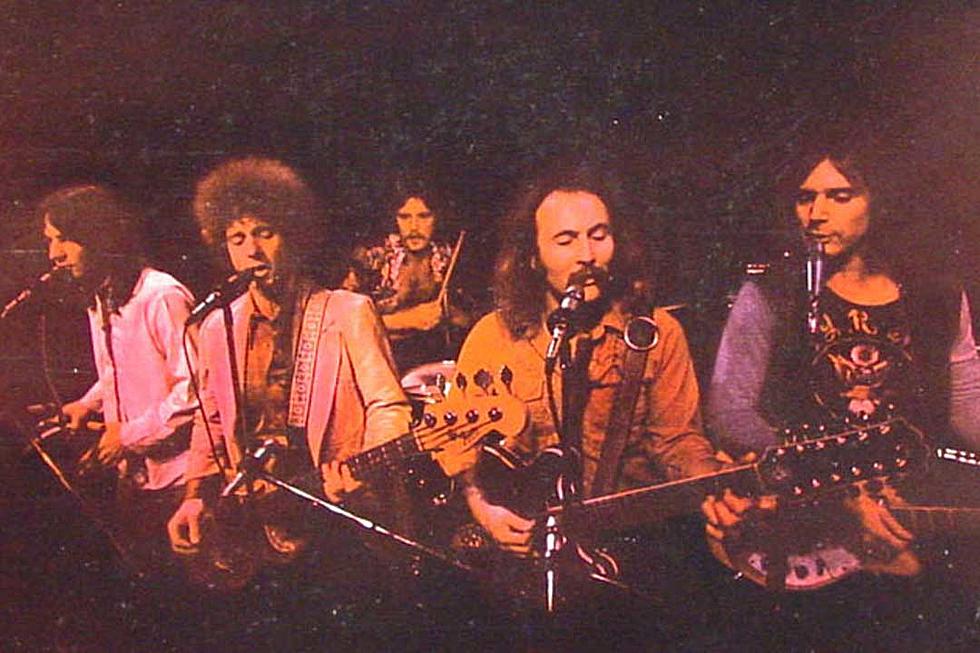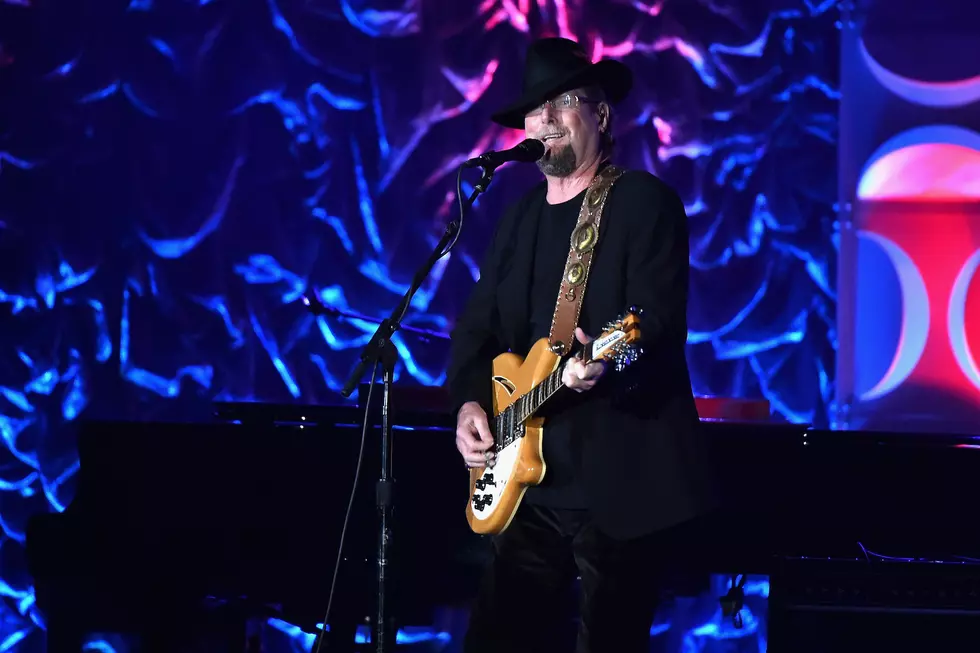
50 Years Ago: The Byrds Relive Their Past and Look Forward on ‘(Untitled)’
In September 1970, the Byrds released the double album (Untitled), which featured both studio and live recordings. Sides one and two were recorded onstage in New York City at Queens College and the Felt Forum; sides three and four were studio cuts that featured four songs written by guitarist Roger McGuinn and Broadway producer Jacques Levy for the musical Gene Tryp.
"Chestnut Mare," the album's highlight, was released as a single, and even though it barely made a ripple on the charts, the song soon became one of the Byrds' best-loved originals. It was intended for a scene in which the lead character the musical, Gene Tryp, attempts to catch and tame a wild horse. "There's a scene ... where he goes off a cliff on a reindeer," McGuinn told the BBC. "We changed that reindeer."
McGuinn and Levy wrote more than 20 songs for Gene Tryp, which they hoped to stage on Broadway. McGuinn told Ultimate Classic Rock that Levy "was a lyricist primarily, and I was the melody man. He'd come up with an idea for a poem and pretty much write it out and I'd come up with a tune for it."
The writers met at the Fillmore East, McGuinn recalled. "I was backstage in the dressing room and this blonde lady came back," he said. "She said, 'My boyfriend would like you to co-write a Broadway musical with him.' I said okay. And then he came in, a big burly guy. You could see why he sent his girlfriend in first, to kind of clear the air."
Levy was a Broadway director who'd worked on plays like Oh! Calcutta! "He thought he'd take a stab at writing a musical based loosely on Hendrik Ibsen's Peer Gynt," said McGuinn. "And to do that, he moved [the setting] to the western United States."
Gene Tryp, an anagram of Ibsen's title, ran out of financing and never reached Broadway. But McGuinn performed it in a one-time student production of the musical at Colgate University, where Levy headed the drama department.
Listen to the Byrds Perform 'Lover of the Bayou'
"Lover of the Bayou," from the musical, kicks off the live half. In the stage production, the swamp rocker is sung by a Civil War-era slave. "This was a spoof of Dr. John," McGuinn explained in the liner notes to the Byrds' Sanctuary III. "If you listen to the lyrics, they don't make any sense: 'Learned to float in the water clock.' I used a lot of terms, made up some phrases that sounded like something ... Dr. John probably did the same thing, but everybody believed him."
The live sides also revisit the Byrds' favorites "So You Want to Be a Rock 'n' Roll Star," "Mr. Tambourine Man," "Mr. Spaceman" and an epic version of "Eight Miles High" that begins with a 12-minute jam before the first words even come in. Thanks to the band's tight musicianship, there's not a throwaway track here. The cuts build a bridge between the band's folk-rock roots and the move to country-rock that began with 1968's Sweetheart of the Rodeo.
The Byrds' lineup that made (Untitled) stayed together for two years, one of the most stable in the band's history. McGuinn, who helped found the group in 1964, was joined by bassist Skip Battin, guitarist Clarence White and drummer Gene Parsons on the album. Battin co-wrote "Yesterday's Train" with Parsons, "You All Look Alike" with singer Kim Fowley and "Hungry Planet," a cautionary tale about the environment, with Fowley and McGuinn.
Battin also sings the LP's final song, "Well Come Back Home," which he wrote as a war raged across the country. "I was personally touched by the Vietnam situation, and my feelings about it came out in that song," Battin said in The Byrds: Timeless Flight Revisited. "I had a high school friend who died out there, and I guess my thoughts were on him at the time."
Terry Melcher, who produced (Untitled), was inadvertently responsible for the album's unusual title. The band had considered naming the album Phoenix and The Byrds' First Album, but hadn't decided on anything when Melcher was asked to submit a label copy sheet to the record company. Melcher scribbled "(Untitled)" on the sheet, and the LP was pressed with that title.
It eventually rose to No. 40 on the chart. For its 2000 reissue, 14 songs were added to the track listing, including alternate studio versions and more live cuts.
See the Byrds and Other Rockers in the Top 100 Albums of the '60s
More From Ultimate Classic Rock









